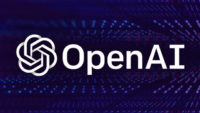OpenAI Tests Open-Source Framework for Autonomous Agents
October 16, 2024
OpenAI has announced Swarm, an experimental framework that coordinates networks of AI agents, and true to its name the news has kicked over a hornet’s nest of contentious debate about the ethics of artificial intelligence and the future of enterprise automation. OpenAI emphasizes that Swarm is not an official product and says though it has shared the code publicly it has no intention of maintaining it. “Think of it more like a cookbook,” OpenAI engineer Shyamal Anadkat said in a social media post, calling it “code for building simple agents.”
Tom’s Guide describes Swarm as “a comprehensive set of tools for creating multi-agent AI systems that can complete tasks and goals while cooperating autonomously.”

The potential business uses for such a framework are extensive. VentureBeat writes that “a company using Swarm-inspired technology could theoretically create a network of specialized AI agents for different departments. These agents might work together to analyze market trends, adjust marketing strategies, identify sales leads, and provide customer support — all with minimal human intervention.”
The latter has resurfaced concerns about AI job displacement, or obsolescence, and security experts are also raising alarms about the need for stringent safeguards “to prevent misuse or malfunction in networks of autonomous agents,” reports VentureBeat. “Concerns about bias and fairness also loom large, as decisions made by these AI networks could significantly impact individuals and society.”
Swarm was engineered to be simple. As code, it is “stateless,” which means it doesn’t retain instruction sets from past tasks, making it difficult to build institutional memory and easy to get it to change behavior. Some see this — coupled with its lightweight design and ease of use — as cause for concern. Like bots on an order of magnitude.
Additional reporting by VentureBeat probes the “concepts of ‘routines’ and ‘handoffs,’” as ways to get the AI agents to collaborate, as well as the “role of state and memory.”
The third-party OpenAI Agent Swarm Project: Hierarchical Autonomous Agent Swarms, explores “a hierarchy of AI agents with distinct roles and responsibilities,” ultimately underscoring “the challenges in creating effective governance structures for AI systems,” VentureBeat explains. Listed as its goal: full autonomy (self-directing, self-correcting, self-improving).
Informed observers agree that the degree of automation suggested by Swarm and similar frameworks could fundamentally change business operations and workforce structure. “The launch is a surprisingly low-key release that could have profound effects on how we interact with AI in the future,” writes Tom’s, noting that OpenAI’s casual couching of ChatGPT in 2022 as “just a research and educational experiment” resulted in a significant outcome.
Anadkat qualifies his post on X by saying it was in response to Swarm “trending unexpectedly” after he originally posted about the company releasing the open-source code on GitHub.

No Comments Yet
You can be the first to comment!
Leave a comment
You must be logged in to post a comment.